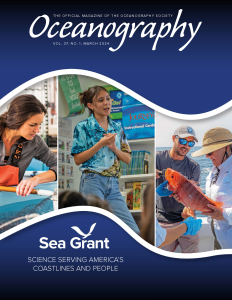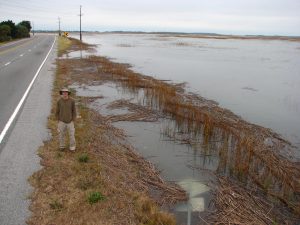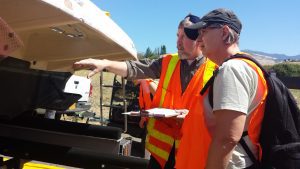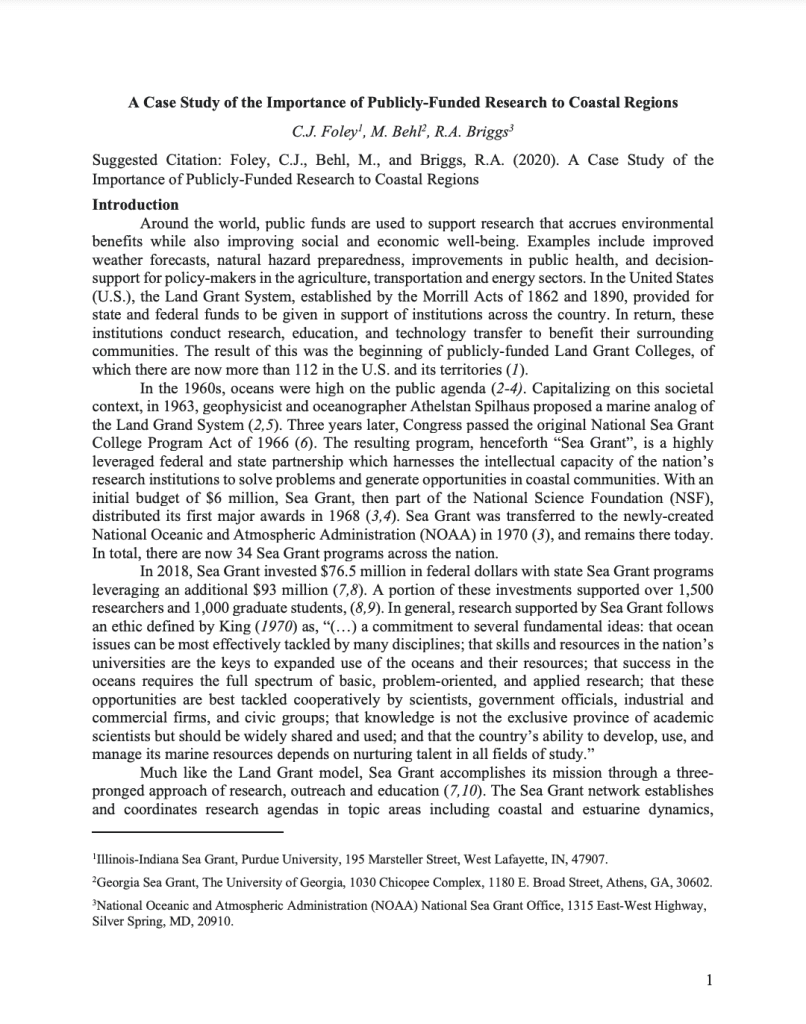Research
When urgent new questions arise, Sea Grant calls on this network for science‐based solutions.
Sea Grant researchers support cutting-edge research in the areas of coastal processes, hazards, energy sources, climate change, storm water management and tourism.
Sea Grant Collection
Visit the Sea Grant Collection at the NOAA Central Library to access Sea Grant research and educational materials over the years.
Research Topic Highlights
Integrated Efforts
Sea Grant Legal Research and Extension
Sea Grant has a network of lawyers working on a host of coastal, ocean and Great Lakes law and policy topics to address community needs. These diverse topics range from matters such as sea level rise and climate adaptation, to public access to the shoreline and the water, to the application of maritime law in marine and coastal industries.
Sea Grant Community Science Network
The Sea Grant Community Science Network facilitates interaction among nation-wide Sea Grant initiatives and provides professional development training for community science practitioners. With over 80 projects, Sea Grant is a vital collaborator and resource in the field.
From Our Community
The Importance of Sea Grant Research
Research by the Numbers
Researchers refers to total number of Sea Grant-affiliated researchers. Metrics reported in Summer 2023 for work conducted February 1, 2022 to January 31, 2023. Click below to see the 2016-2022 Research Summary.


Sea Grant takes center stage in Oceanography special issue
NOAA Sea Grant-funded research and work with coastal and Great Lakes communities across the nation are being highlighted in a special issue of “Oceanography,” the official journal of The Oceanography Society.
This special issue, published in April 2024, features 36 articles contributed by Sea Grant authors across 29 programs and the NOAA National Sea Grant Office.


Planning for higher sea-levels, helping our coastal communities win recognition and save money
In collaboration with North Carolina Sea Grant, Georgia Sea Grant used Vulnerability Consequences Adaptation Planning Scenarios (VCAPS), GIS-based cost-benefit evaluations, and elevation data for flood


Legal research and outreach leads to regional policy consensus on recreational watercraft pathway
One of the primary pathways for the spread of aquatic invasive species (AIS) is the movement of trailered watercraft. Inconsistency, overlaps, and gaps between neighboring
Fund your Project through Sea Grant
Check our latest funding opportunities to see how you can take your research further with Sea Grant.
